Biowaste (biodegradable waste) is organic matter that gets broken down into CO2, water, methane or other simple organic molecules. This is done by micro-organisms like bacteria to produce compost and fertilizers. Inorganic materials also ends up in the waste, some of which can be decomposed by bacteria, but some can't, like microplastics.
Microplastics

Source, flickr, CC BY-SA 2.0
Microplastics are very small particles of plastic that find their way into the environment. The U.S. National Oceanic & Atmospheric Administration classifies them as less than 5 mm in diameter. Two sources of microplastics exist:
- primary: from manufacturing for various human use, like in clothing, cosmetics and other iductrial processes
- secondary: from macroplastic (larger plastic) debris breakdown, like the bulk of the Great Pacific Garbage Patch
In Water
The main place they are found is in aquatic and marine ecosystems, carried there by the water ways and run offs in our urban environments. Plastics take a long time to break down and end up being consumed and accumulate in the bodies of many species, including humans. Plastic contain substances that act as endocrine disruptors which are harmful to human health and the health of other organisms.
In Soil
The accumulation of microplastics in the water isn't the only concern, as they are also being fond in soil. A recent publication in Science Advances discusses research into microplastics that end up in biowaste used for organic composts and fertilizers that get put into soil and used to grow food.
Organic fertilizers are made from plant and animal waste. Microorganisms break down the organic matter via aerobic composting by mixing it with soil, and anaerobic biowaste digestion that produces fertilizer and biogas. When microplastics are present in the waste, they get incorporated into the compost and fertilizer.
New Research
The research was conducted in Germany where municipalities already have specialized bins for collecting table scraps, expired food and other waste to make compost. Farms are also part of the waste collection process. The food waste is then processed in facilities where they also comb through it to clean up the waste before it's converted into fertilizer.
Aerobic and anaerobic processing facilities that use all types of waste had fertilizer samples tested, and both had microplastics in the resulting product. A control facility that only used plant waste from a farm was tested as well. It was the only one that had no microplastics, while there were more microplastics found in aerobic processing facilities.
It seems that the plastic containers used to store food in the grocery stores ends up in the composting bins that get collected by municipalities. Despite efforts to clean them calm through the food waste, not everything can be detected and removed for processing.
As a result, there are microplastics that end up in organic fertilizers, which are then used on soil. The endocrine disrupting chemicals then leach from the plastics, and get absorbed into the food supply that we consume, which negatively affects our health. With rain and water runoffs, the microplastics make their way back into the water supply for us to consume, as well as making the way into rivers, lakes and oceans for other animals to consume.
Endocrine Disrupting Chemicals
Whether used in large-scale agriculture or small scale gardening, microplastics are finding their way into the environment through various forms of fertilizer and biowaste fermentation. The treatment methods matters, as aerobic treatment shows higher microplastic results than anaerobic treatment. If we stop using plastics to store and preserve food, we would be reducing the potential introduction of microplastics into our environment and the negative health effects of the endocrine disrupting chemicals that are leached from plastics.
Endocrine disrupting chemicals are not good to have in our bodies. They cause cancerous tumors, birth defects, learning disabilities, severe attention deficit disorder, cognitive and brain development problems; deformations of the body (including limbs); breast cancer, prostate cancer, thyroid and other cancers; sexual development problems such as feminizing of males or masculinizing effects on females. They can also affect obesity, diabetes, female reproduction, male reproduction, hormone-sensitive cancers in females, prostate cancer in males, thyroid, and neurodevelopment.
What You Can Do
When shopping, you can try to only use reusable bags, and avoid the plastic at the grocery store. Some grocery stores are part of a zero-waste effort and don't package any of their food in plastics. This helps to cut down on garbage waste that can or can't be recycled (like Styrofoam containers), as well as prevent endocrine disrupting chemicals from leaching into the food.
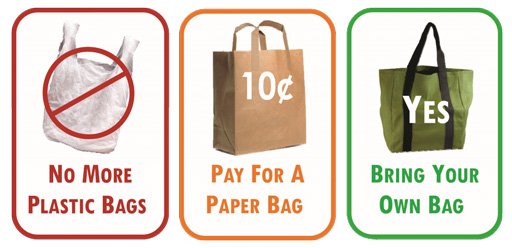
Source
There is a business close to where I live that doesn't use plastic packaging for its food. I shop there frequently. Montreal has also introduced a ban on plastic bags less than 50 microns thick that goes into effect this year. Grocery stores will no longer provide those plastic bags.
At home, you can also avoid putting leftovers in plastic containers. Instead, opt for glass containers. At least try to avoid using plastic containers for hot food, because that increases the rate of leaching chemicals into your food. Having water in plastic water bottle also has endocrine disrupting chemicals leach into the water. It's best to avoid plastic altogether if you can.
References:
- Biodegradable waste
- Microplastics
- Great Pacific garbage patch
- Marine pollution
- Organic fertilizers
- Endocrine disruptor
- Scientists flag plastics concern over organic composts.
- Another Place Plastics Are Turning Up: Organic Fertilizer From Food Waste
- Study shows microplastics in biowaste wind up in organic compost and fertilizers
- Plastic particles found in bottled water
- Organic fertilizer as a vehicle for the entry of microplastic into the environment, Science Advances 04 Apr 2018: Vol. 4, no. 4, eaap8060, DOI: 10.1126/sciadv.aap8060
Thank you for your time and attention. Peace.
If you appreciate and value the content, please consider: Upvoting, Sharing or Reblogging below.
 me for more content to come!
me for more content to come!
My goal is to share knowledge, truth and moral understanding in order to help change the world for the better. If you appreciate and value what I do, please consider supporting me as a Steem Witness by voting for me at the bottom of the Witness page; or just click on the upvote button if I am in the top 50.

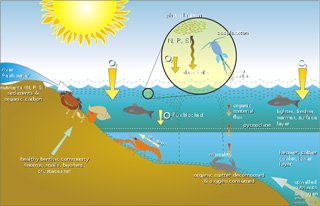

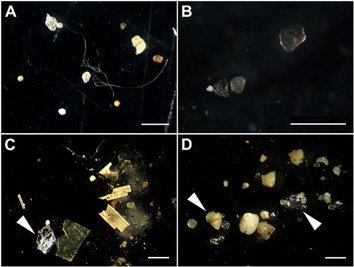
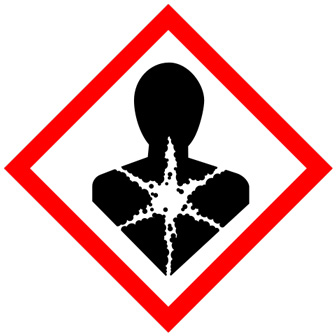
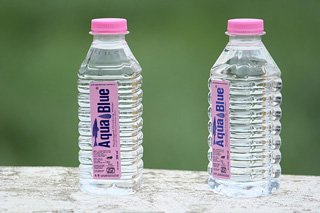
Hey @krnel, thank you so much for your contributions. I am an Engineer and I appreciate the fact that you're raising awareness. Plastic is killing our oceans, it is killing the planet. Tiny pieces can't be stopped by filters and end up in the ocean killing fish and mammals. We need to take responsibility as individuals and stop using plastic as soon as possible.
Please keep up the great work!
Downvoting a post can decrease pending rewards and make it less visible. Common reasons:
Submit
Yes, the only ones who can do it is us. We feed the cycle of use. Companies will keep producing products with plastic because we are the ones paying them to do so. We have to point the finger at ourselves collectively as consumers :/ "Vote" with the purchasing power and send a message.
Thank you and you're welcome ;)
Downvoting a post can decrease pending rewards and make it less visible. Common reasons:
Submit
How does one check and if necessary, clean their soil from this contaminant? I am sure it may be a complicated process if it is possible at all. If it requires a lengthy explanation and you understand it, maybe you could do a follow up on this explaining how we can fight against the damage already done. I would greatly appreciate it.
Someone posted recently here on Steemit (maybe you?) about the microplastics being in the water. I am unsure how many of us can fight this crap, and wish that more plans like yours above regarding no plastic bags could be collected together and spread so we could all do our part without collecting small snippets here and there. It has felt for quite some time one has to be a scientist with your own laboratories to even be aware of the crap we are led to do by the experts paying off our elected officials.
Downvoting a post can decrease pending rewards and make it less visible. Common reasons:
Submit
Depending on the size in mm or microns... it can be really hard to detect and remove. I could research it and do another post as you suggest. I think the only thing that can be done is to stop it from continuing, and then we have to suffer the consequences of our own stupidity, and reap the sowing we cast until it eventually decomposes...
Tiny micron sized fibers of polyester end up in the water way from laundry use. I am going to start going to cotton only clothes I think. Yeah, there is so much crap that we can't even see, it's hard for us to know what we are doing to ourselves in terms of harm :/
Downvoting a post can decrease pending rewards and make it less visible. Common reasons:
Submit
Thank you
Downvoting a post can decrease pending rewards and make it less visible. Common reasons:
Submit
I'm glad more supermarkets now have begun to stop giving out free plastic bags. People can bring their own re-usable bags or buy one there. As for the plastic bottles, I plead guilty on this one. I always carry water around in plastic bottles. I'm pretty sure this is my future cause of death. I bought a metallic thermos a few weeks ago but never actually used it yet. Your article has given me motivation to do so, so thanks :)
Downvoting a post can decrease pending rewards and make it less visible. Common reasons:
Submit
Yup, I've been using reusable bags for many years. I don't buy water, and filter my own ;) I hope you do start using that new thermos ;) You're welcome.
Downvoting a post can decrease pending rewards and make it less visible. Common reasons:
Submit
this is a serious problem that nobody seems to take seriously. My thought in CA is that the paper bags should be free and the plastic bags $.10 . I know it is a tree killer but we can replant. We get a bag here or $.10 whether it is plastic or paper. Give us pain on the plastic and we won't use it. At least the paper is biodegradable. We also need to hold corporations accountable for not replacing the "earth" they scorch. Many are supposed to but do not because nobody is looking.
Downvoting a post can decrease pending rewards and make it less visible. Common reasons:
Submit
Yeah, well we buy the products of corporations, we make their business keep going... we are doing this to ourselves as a collective. We nee to pressure our neighbors and everyone to stop supporting ways of life that are harmful to us and other species.
Downvoting a post can decrease pending rewards and make it less visible. Common reasons:
Submit
I'm slowly starting to transition from plastic containers to glass. It's not that hard. I can purchase jelly or garlic in a jar to reuse and store herbs. I'm not paranoid about plastic, but after reading this post I'll be even more vigilant. The fact that the endocrine disrupting chemicals can have such a dire effect on our lives is very disturbing-- I already have endocrine issues to deal with.
Downvoting a post can decrease pending rewards and make it less visible. Common reasons:
Submit
Yeah, if you already have issues, then being paranoid about plastic might not be a a bad idea ;)
Downvoting a post can decrease pending rewards and make it less visible. Common reasons:
Submit
Lots of good information there, @krnel. I hadn't heard the term "microplastics" before reading this.
It's also good that you give some actionable steps people can take to start helping with this situation. Thanks!
Downvoting a post can decrease pending rewards and make it less visible. Common reasons:
Submit
You're welcome :)
Downvoting a post can decrease pending rewards and make it less visible. Common reasons:
Submit
I'm sure there must be some way to break down plastics and render them harmless. Could it be that the people who could do this just don't want to? I mean I know they can just burn it, I have burnt plastic bags and bottles and I see nothing left, OK the fumes might be harmful but this could be done in some place where it doesn't hurt anyone, like a desert, but I guess there must be a more environmentally friendly and cheap way to get rid of it.
Downvoting a post can decrease pending rewards and make it less visible. Common reasons:
Submit
There are biodegradable plastic type bags I think, but not as cheap for use. Burning plastic is toxic :/
Downvoting a post can decrease pending rewards and make it less visible. Common reasons:
Submit
Your post has been selected by Connect to the World FR
@cw-fr
We promote English posts in the French community!!
We are writing a post with our selection that we share within the French community
you can see the post by clicking on the image below
Thanks for the great content!!
Downvoting a post can decrease pending rewards and make it less visible. Common reasons:
Submit
that's why eating fish is so bad (talking about non-vegans). Basically you''re eating the plastic the fish ingests.
Downvoting a post can decrease pending rewards and make it less visible. Common reasons:
Submit
Has no one found a way to make plastic biodegradable?
Downvoting a post can decrease pending rewards and make it less visible. Common reasons:
Submit
we should not waste the food!
We should give them to poor and needy
Downvoting a post can decrease pending rewards and make it less visible. Common reasons:
Submit
Great information really done well
This is a fertilizer for agriculture that benefits agriculture a lot
Downvoting a post can decrease pending rewards and make it less visible. Common reasons:
Submit
You have given us very important information about the microplastic, which are naturally mixed in many of the most important information we actually do. Many people understand that you have posted a scientific one. We are many people who know about science, I learned a lot about your post.
Downvoting a post can decrease pending rewards and make it less visible. Common reasons:
Submit
amazing
Downvoting a post can decrease pending rewards and make it less visible. Common reasons:
Submit
If only we would care a bit more for the environment...
Very informative....Will try to stop using plastics.
Downvoting a post can decrease pending rewards and make it less visible. Common reasons:
Submit